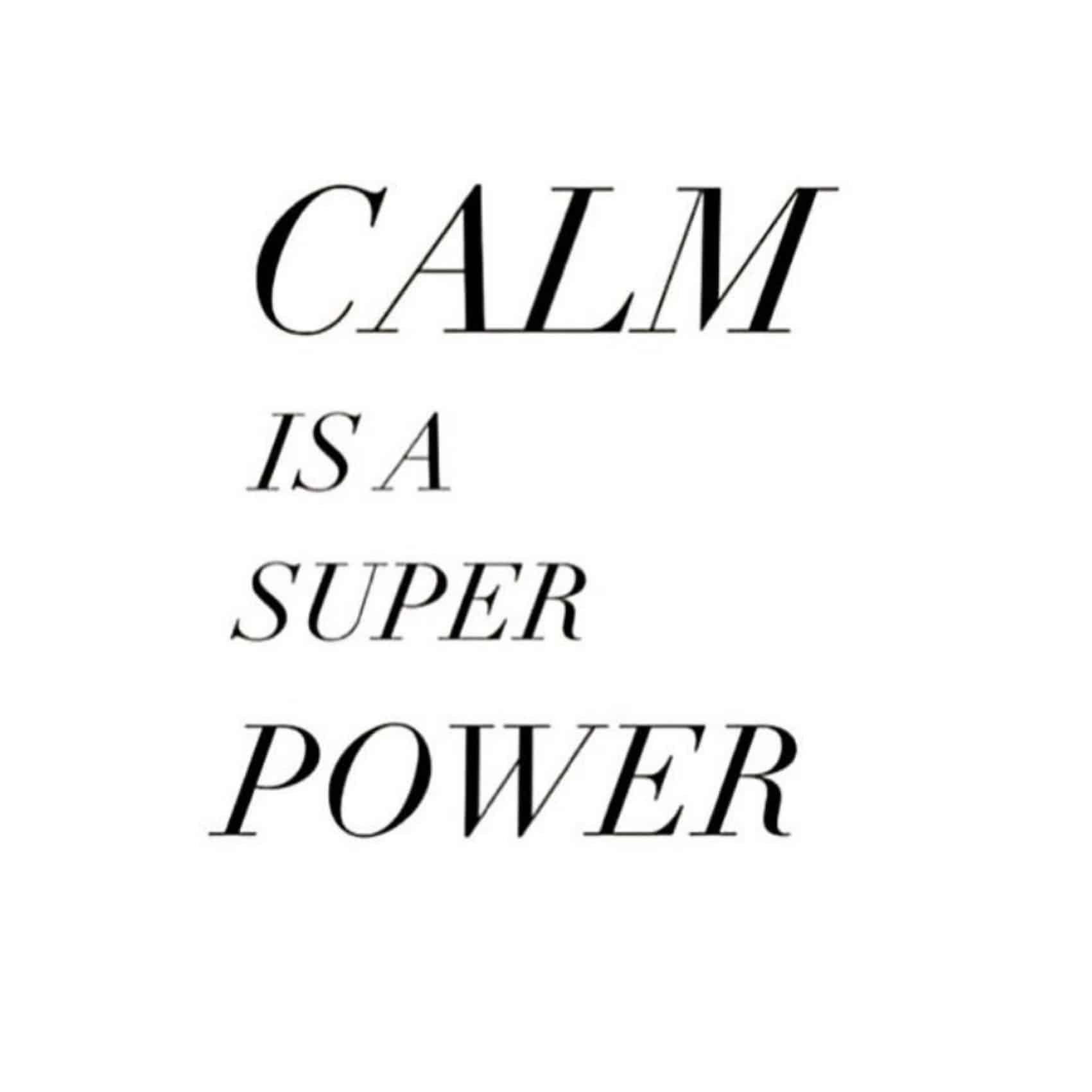

Cultivate Calm Amongst COVID-19
This has been a strange and scary week. Since the WHO declared a worldwide pandemic involving COVID-19 things have changed rapidly; day-by-day, hour by hour. During these challenging times many of us are feeling especially stressed and anxious. For those of us that already have an anxiety disorder, or were under stress, it has likely increased ten fold. When anxiety/stress levels rise it is even more important to be mindful of cultivating our calm amongst the chaos. Here are some of the things I do to help me manage and hopefully they will benefit you too.
1) Focus on WHAT you can control
We are living in a world right now where the situation with COVID-19 is constantly changing and is highly unpredictable and that’s scary. Unpredictability breeds anxiety. But in order to manage our minds we need to have a shift in our thinking. When you find yourself worrying, take a moment to focus on what you CAN control. You can’t control if COVID-19 is circulating in the area where you live, but you CAN take preventative measures to keep you and others safe. You CAN limit where you go, who you see, and who you allow access to your home. You CAN maintain social distancing and ensure you are adhering to proper cleaning and hand washing practices. Worried about finances? You CAN make adjustments. Review your expenses and cut where you can. Make a budget, meal prep to reduce your grocery bill, contact your bill providers and see if they are offering any financial relief. Recognizing that sometimes all you can control is your attitude and actions can help reduce your overall anxiety.
2) Implement a Morning & Evening Routine
This is something I have recently adopted into my life and I cannot express how much of a difference it has made in my moods and anxiety level. I have come to realize how important it is to bookend the day with morning/evening routines. The way we start and end our day matters to our mindset, energy, sleep, and overall wellbeing. These rituals can look different for everyone. It can mean meditation, reading, coffee alone, a workout, or a soak in the tub. It’s important that you don’t start or end your day with technology. Doing so can have a detrimental affect on your mood and sleep. Try waking up and winding down with a cup of tea, and a good (paper/audio) book, rather than TV or social media. Or start using some of the great apps like Calm that help with sleep, meditation, and relaxation.
3) Disconnect
Limit your intake of social media and news coverage. For those with anxiety, these platforms can be overwhelming under normal circumstances. Add a global pandemic and it can be suffocating. It doesn’t matter what corner of the internet you find yourself, it’s COVID-19 overload. There’s a fine line of balancing being informed, but not inundating yourself with so much information that you increase your stress and anxiety. It’s no secret that it has been found that social media can be detrimental for your mental health. In a 2015 study, it found that social media induces more stress than it releases, especially for women. Set parameters for yourself. Maybe that looks like checking the news once or twice a day and putting a time limit on it. It may be also be hard to stay off social media depending on your work. However, you can unfollow accounts that contribute to you feeling anxious and find more positive and inspiring ones that leave you feeling uplifted.
4) Move your body
This is key. Exercise reduces levels of the body’s stress hormones, such as adrenaline and cortisol. It also stimulates the production of endorphins, chemicals in the brain that are the body’s mood elevators. It needn’t be complex and you don’t have to like working out. Psychologists studying how exercise relieves anxiety and depression suggest that a 10-minute walk may be just as good as a 45-minute workout. The objective is to move. Do some yardwork, or have a dance party with your kid. Just MOVE YOUR BODY. Although the effects may be temporary, studies show that a brisk walk or other simple activity can deliver several hours of relief, similar to taking an aspirin for a headache. Do what you can to get moving every single day.
5) Practice Gratitude
How often have you heard about the importance of practicing gratitude? Celebrities like Rachel Hollis to Oprah preach the benefits. I admit, I used to think this was kind of hokey. But since incorporating this into my morning routine I can tell you it really does help. Including gratitude into your life will help you shift your perspective to focus on the silver lining in more situations rather than focusing on the negative. This is all something we could use right now. Gratitude and its impact on our mental and physical health have been well researched. It not only can effectively increase happiness and reduce depression, but it can help you sleep better, improve your relationships, support your immune system and more.
How To Practice Gratitude: Start a gratitude journal. It doesn’t need to be fancy, it can be a notebook from the Dollar Store. Each day write a minimum of 3 things that you are grateful for. If you struggle at first and need some help you can always purchase a gratitude journal that helps you with prompts. I use The 5 Minute Journal. I love it and highly recommend it.
6) Declutter
Our environment has a significant impact on our mood. Since we are all hunkered down at home, if your house is full of clutter it isn’t doing you any favours in reducing your stress and anxiety. A University of California study found that levels of the stress hormone cortisol were higher in mothers who lived in homes they described as “cluttered” or full of “unfinished projects.” We all have nothing but time and no where to go. There is no better time than the present to get organized. Not only will you feel a sense of accomplishment but your overall mood and feelings of stress will decrease.
I hope these simple tips can help you cultivate some calm in this challenging time.



